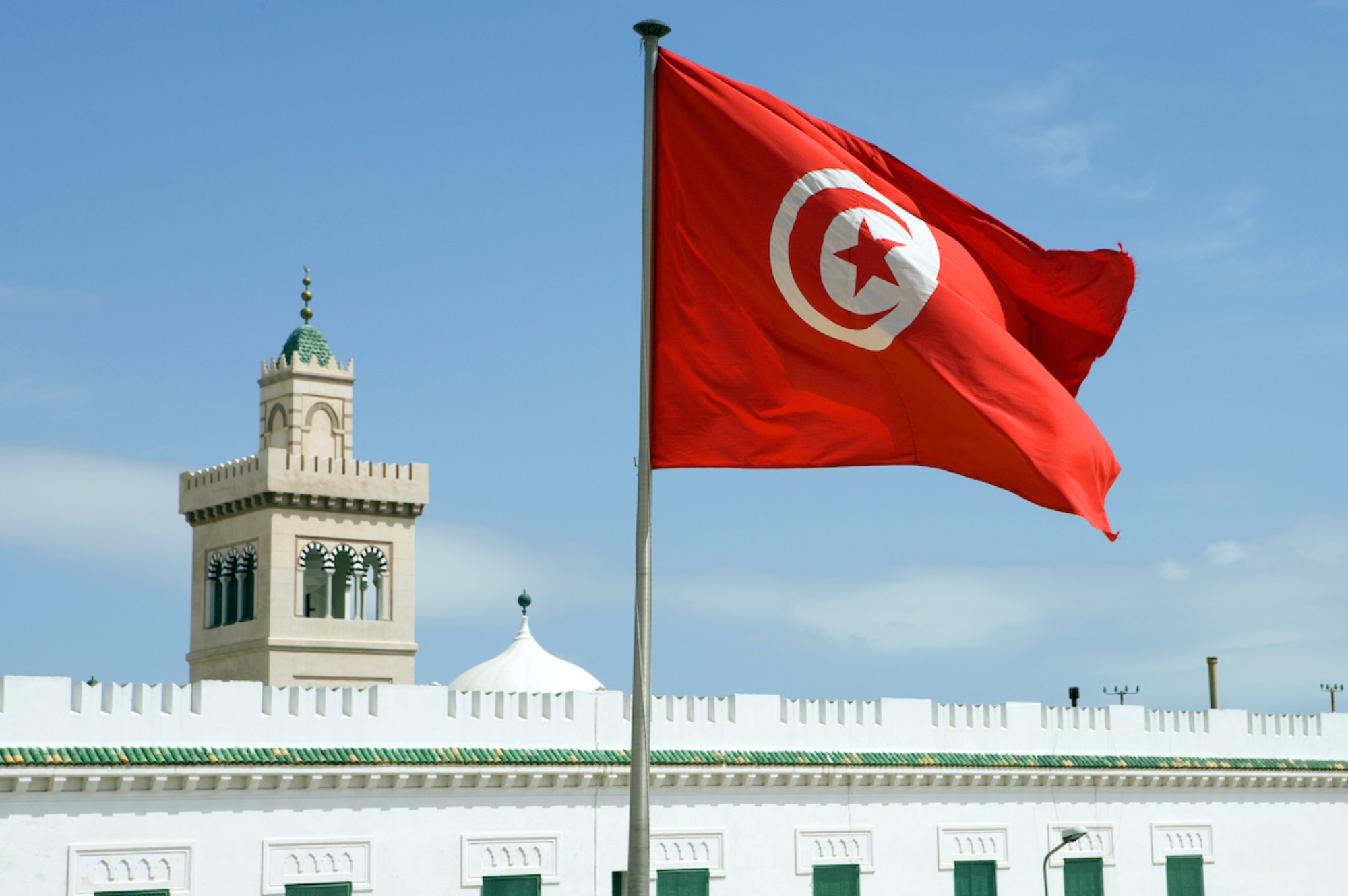Strengthening Tunisia’s English education system starts with the nation’s teachers; the TC Tunisia Project — a transnational partnership spearheaded by TC’s ZhaoHong Han and funded by the U.S. State Department — sought to fulfill this quest during its two-year virtual run and made critical steps forward during the project’s field trip providing in-person teacher trainings and meeting with stakeholders last fall.
But what makes the TC Tunisia project unique, and why are the stakes so high? We break down what you need to know.
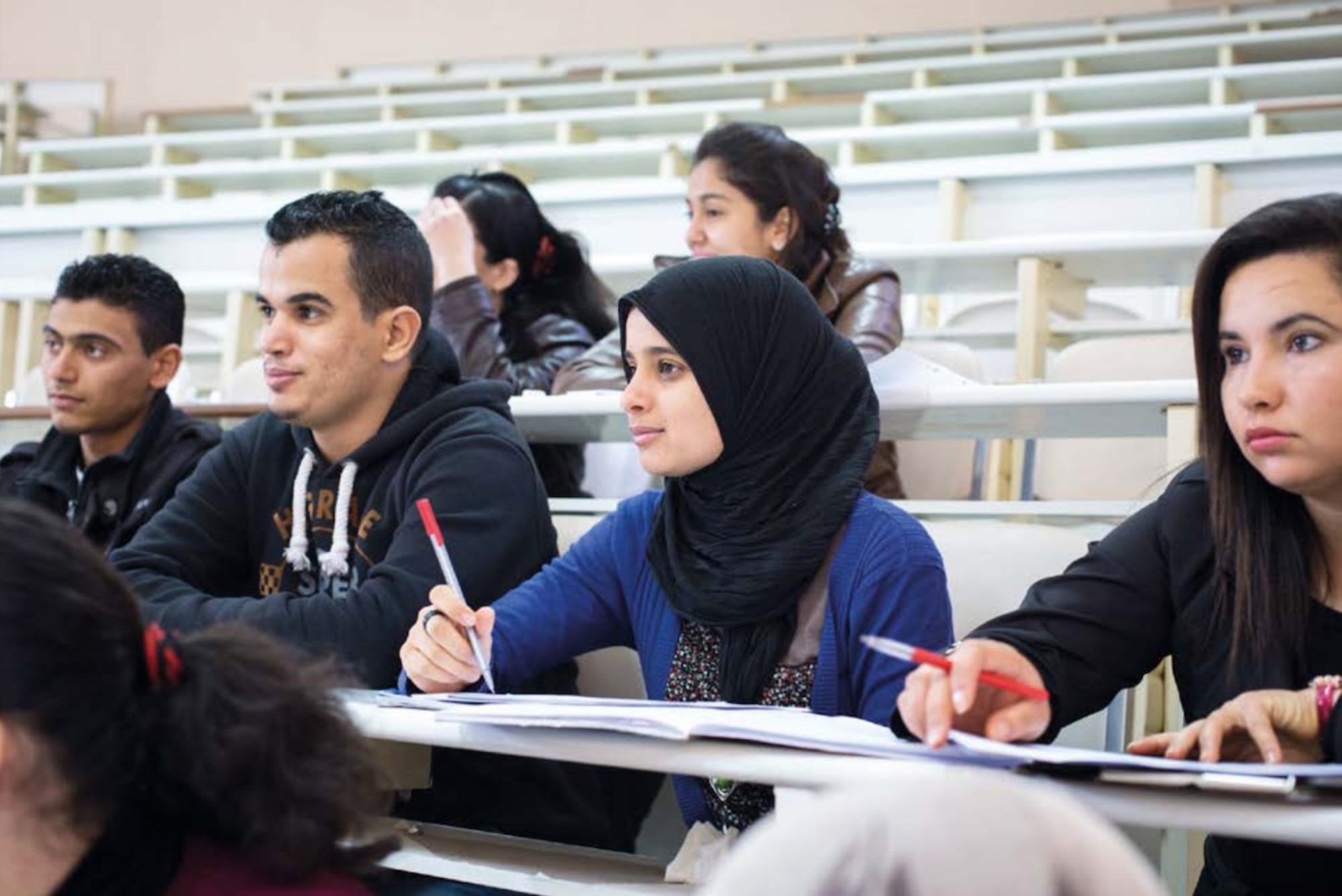
Students in Tunisia (Photo: USAID)
Language skills are a needed economic tool.
Amid continued political and economic strife in the North African nation, experts have identified several factors that can help strengthen Tunisian participation in the global economy. “Improving learning outcomes” and building a more inclusive economic system is essential, in the view of the World Bank — while others see economic improvements as increasingly critical to a nation with a 17 percent unemployment rate, food and energy shortages, and an estimated 45,000 Tunisians crossing the Mediterranean in hope of finding opportunities elsewhere.
“Knowing English would give [Tunisians] better access to today’s global economy,” explains Han, noting that the demand for English teachers is part of a broader trend throughout the region. “We’re training teachers who are training the next workforce.”
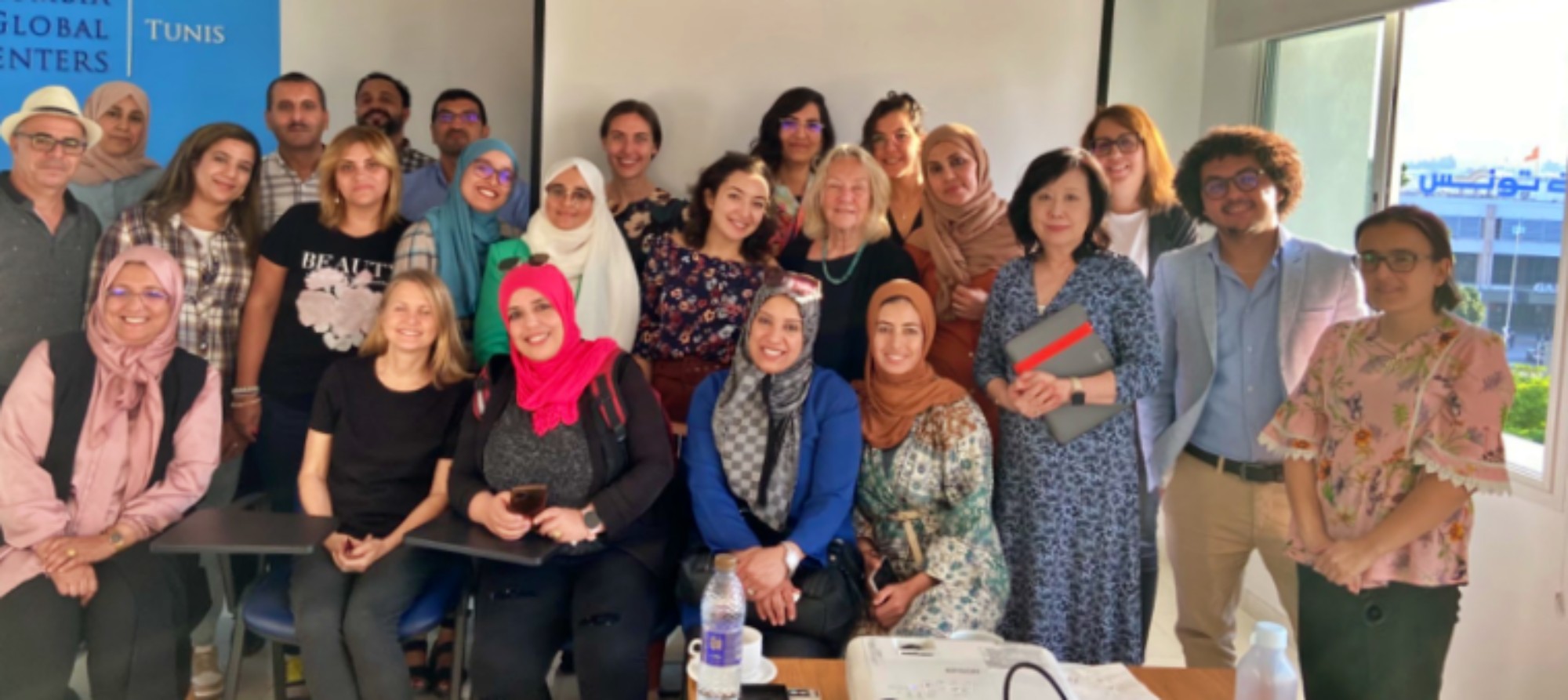
Students, instructors and TC Tunisia leaders gathered for the first time last fall. (Photo courtesy of Columbia Global Centers)
TC Tunisia grads will help reshape the language landscape.
Graduating more than 40 participants throughout the duration of the program, TC Tunisia’s potential impact on the nation’s educational system is both immeasurable and significant. Many of the program’s participants hold district-level teacher training roles, while others return to classrooms across the country to continue their work on the ground.
“This journey has deeply impacted us as learners, teachers and as human beings,” explained TC Tunisia participant Cyrine Kortas, who teaches at the Higher Institute of Languages in the city of Gabes, about four hours south of the nation’s capital. “I’m very much grateful for being granted the opportunity to be part of this life-changing experience…We’re starting a new story.”
Across Tunisia, most language teachers are untrained and operate with less than optimal instructional materials, according to Han, who sees these efforts as “instrumental in promoting quality English language instruction at all levels in Tunisia.”
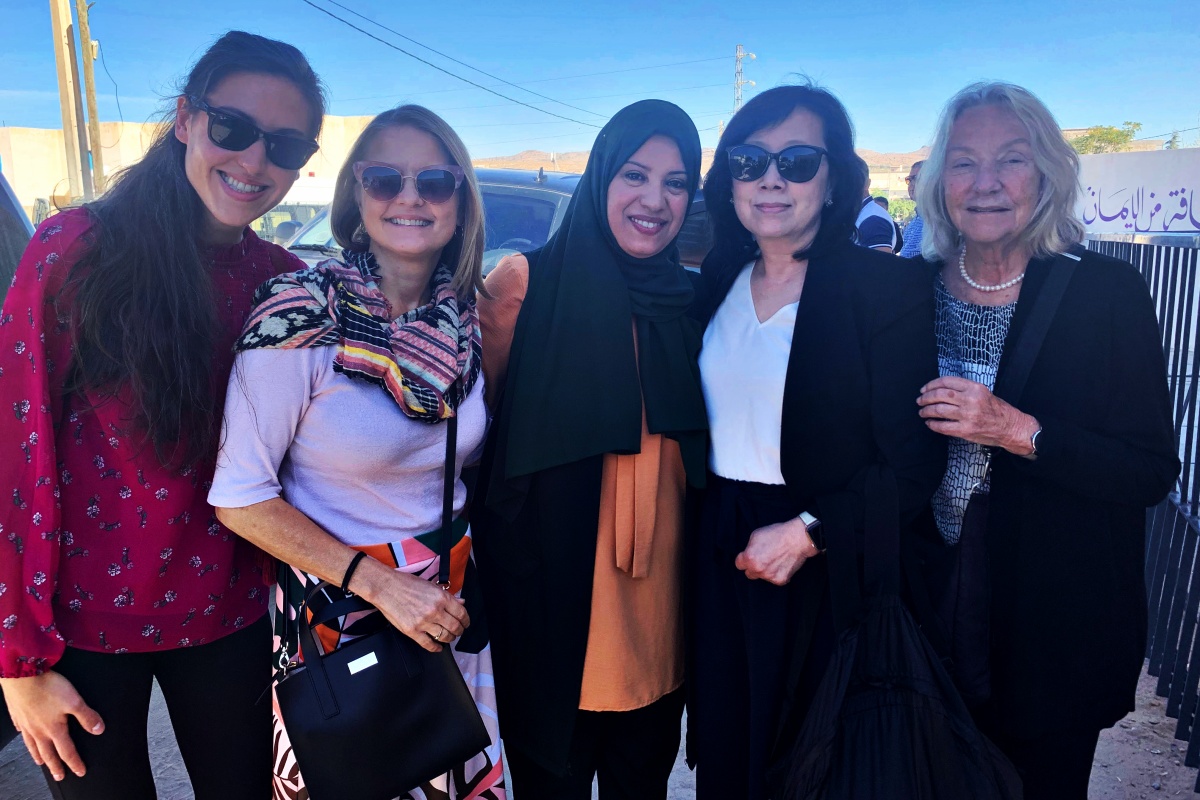
TC Tunisia leaders and staff during their fall visit. (Photo courtesy of Han)
Collaboration Made This a Success
Numerous partnerships created a strong foundation for TC Tunisia’s success, with TC working closely with the U.S. Embassy Tunis, the Tunisian Ministry of Scientific Research and Higher Education, and Columbia University Global Centers - Tunis mostly virtually over the two-year period.
“The goal has been achieved twice over with two successful cohorts of English-language educators,” said Portia Williams, Vice Provost for Academic Planning and Global Affairs, at the recent graduation ceremony for the latest TC Tunisia grads. “The work you have put in is paving the way for the next generation of Tunisians.”
Alongside Han, students benefited from the expertise of instructors Vivian Lindhardsen, Donna Brinton, Sarah Creider, and doctoral student Ashley Beccia, among others.
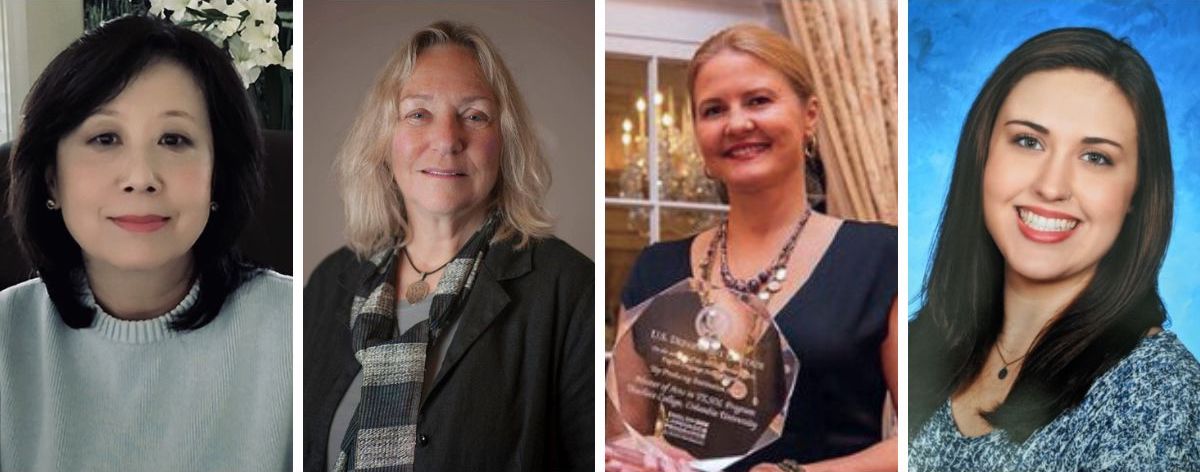
ZhaoHong Han, Professor of Language and Education and Director of the Center for International Foreign Language Teacher Education, and Director of TC Tunisia; instructor Donna Brinton; instructor and faculty member Vivian Lindhardsen; and doctoral student and project assistant Ashley Beccia. (Photos: TC Archives)
More work lies ahead.
To help build “a capacity for delivering instruction” of the English language, the TC Tunisia program served pre-service teachers of working with young learners — a natural approach given the realities of the country, where English is now part of the national curriculum for elementary schools
But Han hopes that a potential return to TC Tunisia in the future would focus on English-medium education — through which instructors could teach college students computer science, math, etc. in English. In turn, students would develop the language proficiency needed to work internationally in their discipline of choice.
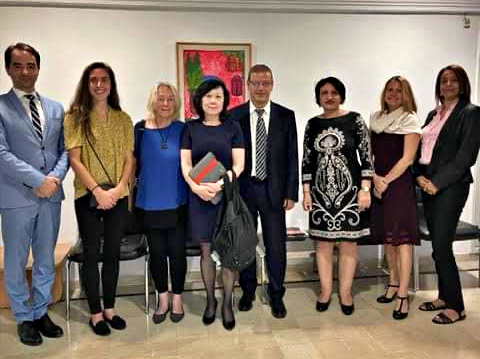
TC Tunisia staff and staff from the Tunisia Ministry of Scientific Research and Higher Education. (Photo courtesy of Han)
“The benefits we’ve reaped from this program will be reflected in our future teaching and practicing that learning is an endless process,” explains TC Tunisia participant Najan Ghozlani. “The instructors were incredible and inspiring for anyone willing to make their profession an art, a craft, a science.”
